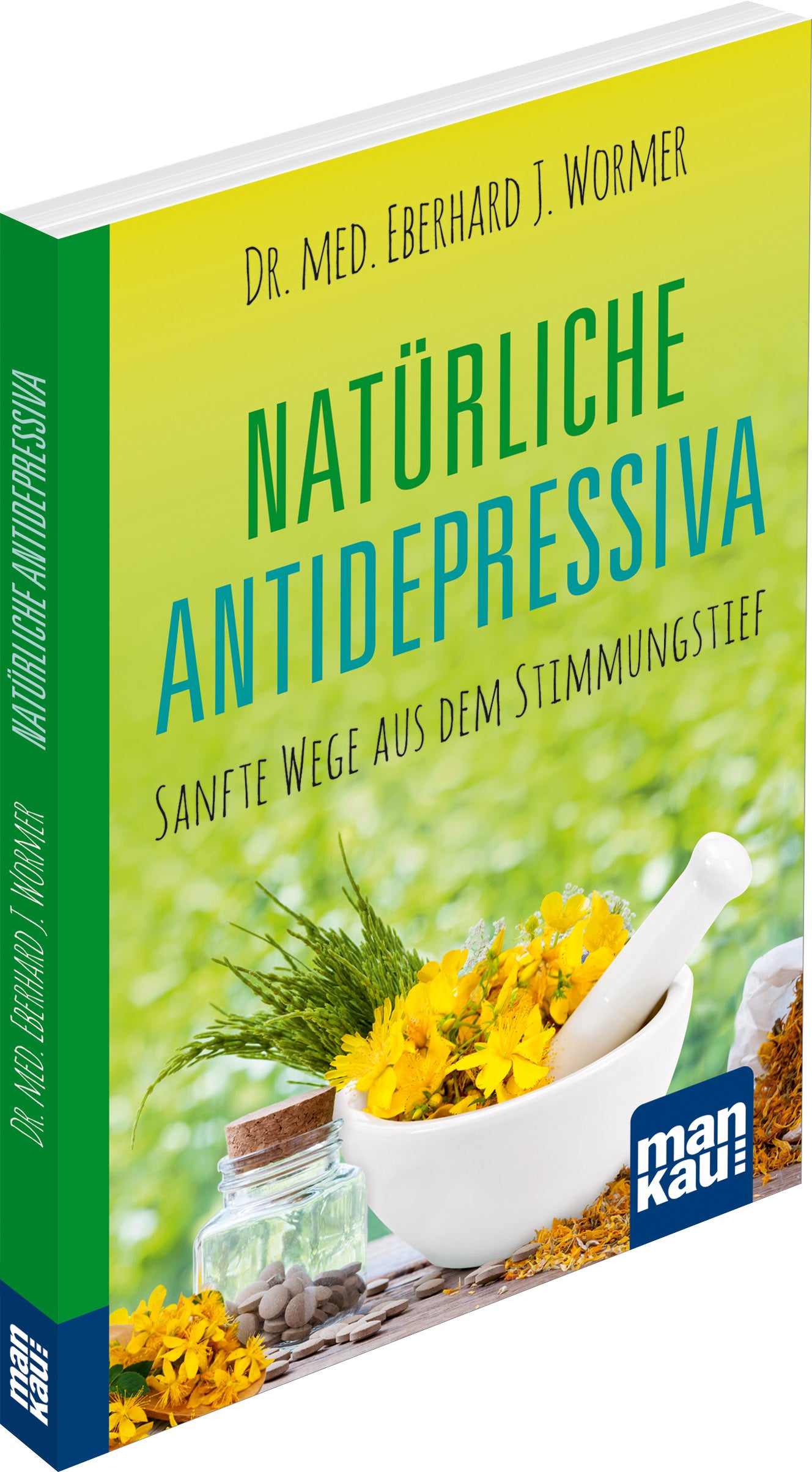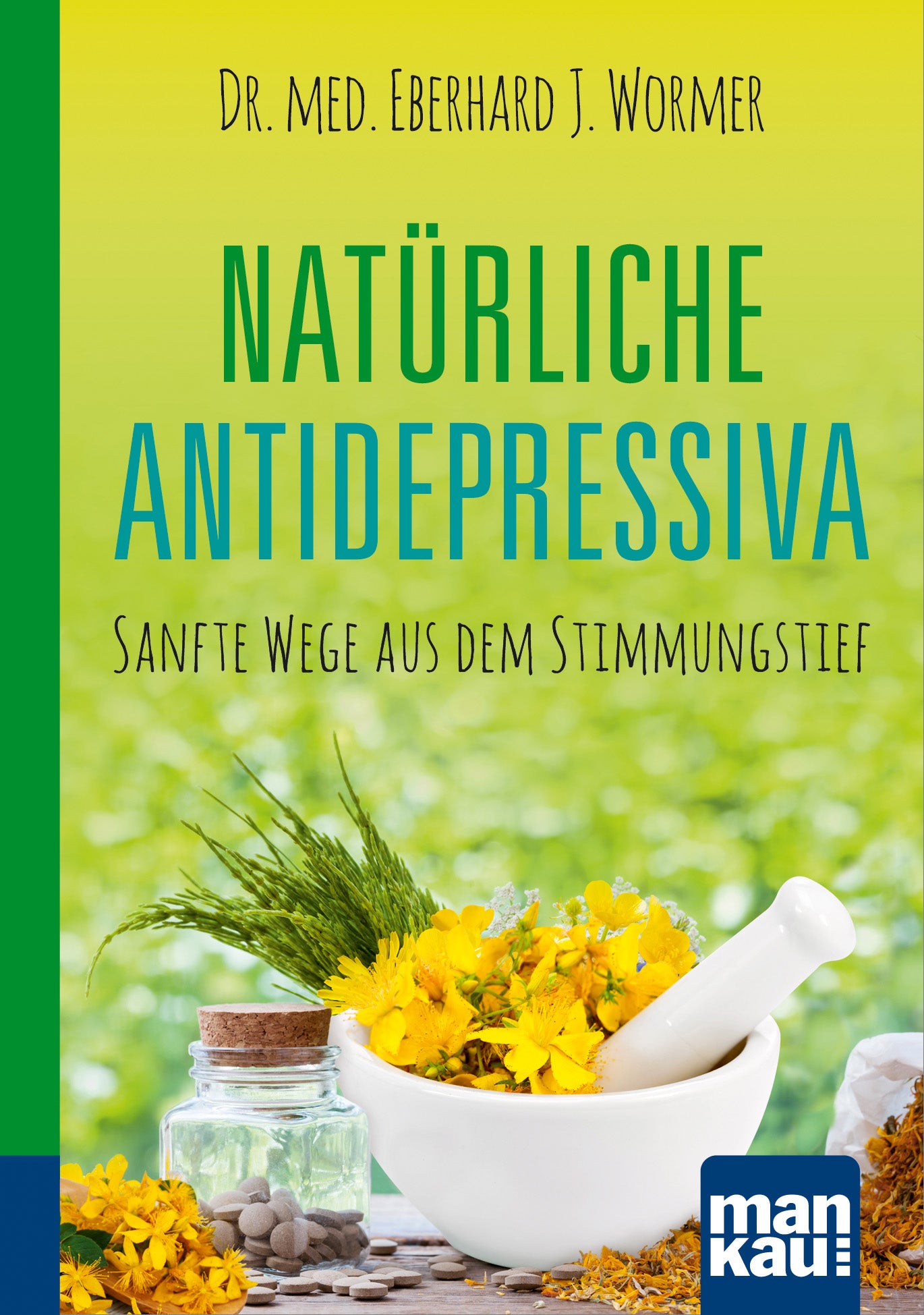

Natural antidepressants. Compact guide
Gentle ways out of the low mood
Tax included. Shipping calculated at checkout
Sofort lieferbar: 1-3 Werktage
2nd updated and expanded edition 2022, paperback
11.5 x 16.5 cm, full color, 158 pp.
ISBN-978-3-86374-664-3
Natural help without side effects
Since ancient times, "melancholy" has referred to a mood characterized by melancholy and gloom, which has inspired poets and thinkers to write gloomy self-descriptions. Today, the disease is referred to as "depression" and a global trend can be identified: in addition to an alarming increase in depression, which is associated with social factors, the resulting burdens - for example in the form of incapacity to work, inpatient treatment and early retirement - are also increasing dramatically.
Unfortunately, the health and quality of life of those affected are all too easily put at risk when strong psychotropic drugs are prescribed too quickly. If psychological complaints are caused by undetected deficiencies, chemical antidepressants are usually ineffective. Side effects add to the dangerous depression.
The compact guide deals with both the symptom of “depressive mood” and the mental illness “depression”; it focuses primarily on numerous non-pharmacological, well-tolerated antidepressants and alternative therapy concepts:
- Signs, diagnoses and causes of depression
- Opportunities and risks of pharmacological treatment
- endogenous and herbal antidepressants
- antidepressant measures, nutrients, medicinal herbs and mushroom medicine
– Comprehensively revised, updated and expanded new edition –
Reviews
Additional info
Depression self-test
Test yourself: Are you just in a bad mood or are you already depressed? To answer this question, you can use a "depression self-assessment inventory" that asks about certain topics. Take the free self-test...
What this book offers
Find out everything you need to know about depression and learn about gentle remedies and therapies.
Basics
Mood swings are usually normal adaptive reactions to different stresses in our lives. However, when extreme moods become a permanent condition, action is required. In this chapter, you will learn what the difference is between a normal mood swing and "real" depression, how it is defined exactly, and what symptoms and causes are possible.
Natural antidepressants
Chemical antidepressants are not always necessary to treat depression; natural alternatives often help. These include nutrients and body substances such as fatty acids and amino acids. Vitamins are also very important as they strengthen health and ensure a balanced mood. Minerals also influence the balance of vital substances in the body. Iron deficiency, for example, is a common cause of depressive moods. Hormones also have a major influence on our mental balance and the ups and downs of our moods. A table presents natural antidepressants at a glance: indication, use and effectiveness of the most important natural antidepressants.
Antidepressant alternatives
There are numerous simple options for dealing with depression. St. John's wort is the number one herbal antidepressant, but roseroot and valerian also have a mood-enhancing effect. Current options include effective applications of cannabis and mushroom medicine. Complementary therapies complete the range - aromatherapy, homeopathy, acupuncture or light therapy. Sleep cures are often successful in alleviating depressive symptoms. You will receive valuable tips for reducing stress. The author also explains common forms of therapy from the field of psychotherapy and art.
Choose options







